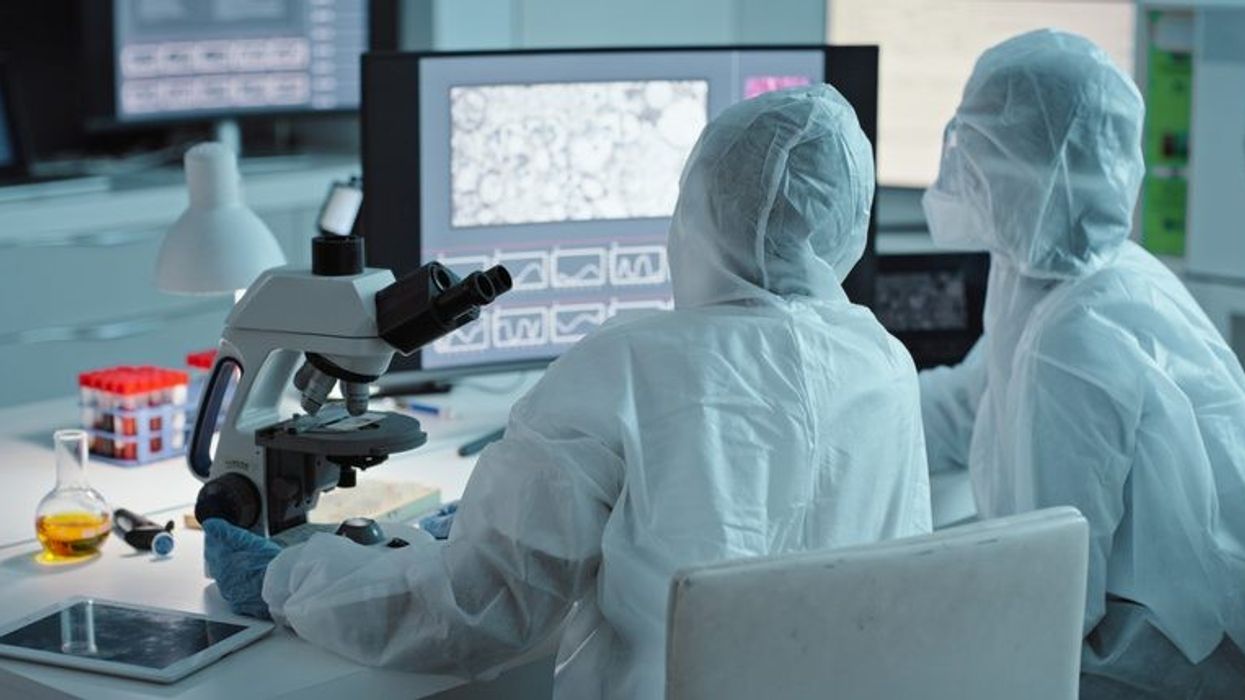A team of scientists has utilised AI technology to streamline a single test that can detect both hepatitis C and the Covid-19 virus.
The simplified test can be conducted within minutes in a small test tube, and with additional advancements, it could soon be available at doctor's offices and even as home tests similar to pregnancy tests.
The purpose is to create a dependable and accurate home-based test that is comparable to laboratory-based tests, said Piyush Jain, a chemical engineering professor at the University of Florida.
"Our objective is to develop a simple test that eliminates the need for expensive equipment and provides results in just 10 to 20 minutes," said Jain, who led the research published in the journal Cell Reports Medicine.
The research team has employed artificial intelligence (AI) tools to develop a more straightforward version of the one-pot reaction system that occurs in a single small test tube.
This test, which utilises RT-LAMP technology to amplify virus genome fragments and create a visible signal upon virus detection, can be read simply by looking for a blue hue or utilising a small device that senses a change in the test tube.
According to the researchers, this test could eventually be refined and made available as home tests that are as convenient as a pregnancy test, with the goal of being just as reliable as lab-based tests.
The US Food and Drug Administration (FDA) has approved some one-pot tests for Covid-19 for at-home use as part of the emergency use authorisation. However, these tests have a relatively high false positive rate, indicating that they are not as dependable as they could be.
"We are combining another technology called CRISPR to determine the difference between a false positive and a true positive," Jain said.
The CRISPR system is renowned for its potential to rapidly enhance genetic engineering, offering hope for curing inherited diseases by repairing genomes.
Professor Jain's team exploits CRISPR's ability to target specific genetic sequences, meaning that the test will only produce a positive result if the sequence of the hepatitis virus, for example, is present.
However, while the RT-LAMP technology used in the test requires a temperature of 65.5 degrees Celsius, CRISPR works best at 37.7 degrees, making the testing process more complex. This results in the need for two separate reactions, making the test too difficult to use at home.
Therefore, Jain's team has been working to create a CRISPR system that can withstand higher temperatures. They recently discovered a heat-resistant CRISPR enzyme from a bacteria species that thrives at 60 degrees Celsius.
Using AI tools, the researchers analysed the enzyme and identified four changes that would enable it to work at 65.5 degrees Celsius.
The AI programmes suggested a few dozen changes to the enzyme, which Jain's group tested in the lab. They eventually found four changes to the enzyme that let it work at 65.5 degrees.
"It's very challenging for any human to do this kind of analysis on an enzyme. We didn't have to spend years; we could make these improvements in months,” Jain said.
“With everything working at the same temperature, now we are able to combine everything in a true one-pot reaction we call SPLENDID," he added.
Clinical samples from patients with hepatitis C or Covid-19 were used to validate the team's simplified SPLENDID test. The results showed 97% accuracy for SARS-CoV-2 and 95% accuracy for the most common version of the hepatitis C virus found globally.
However, the test did not perform well against less prevalent versions of the hepatitis C virus, but Jain said that simple modifications to the test could enhance its accuracy swiftly.
(PTI)




